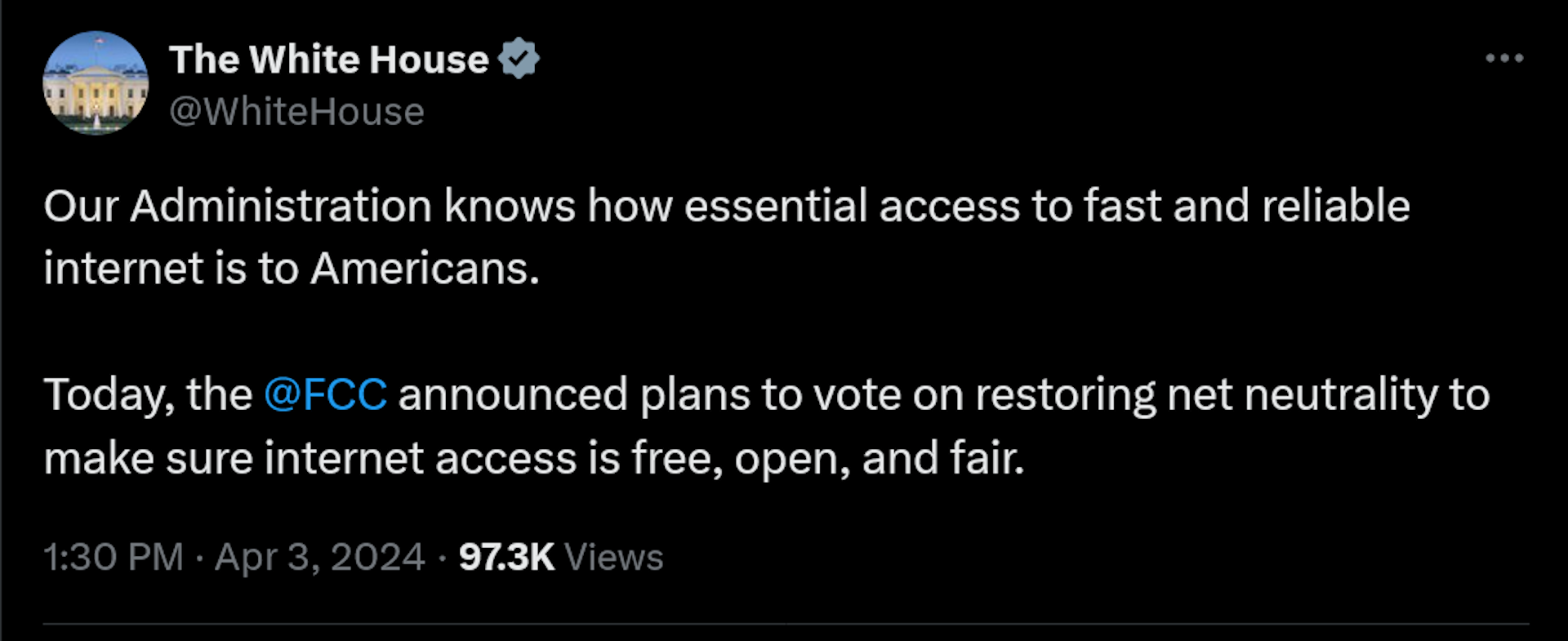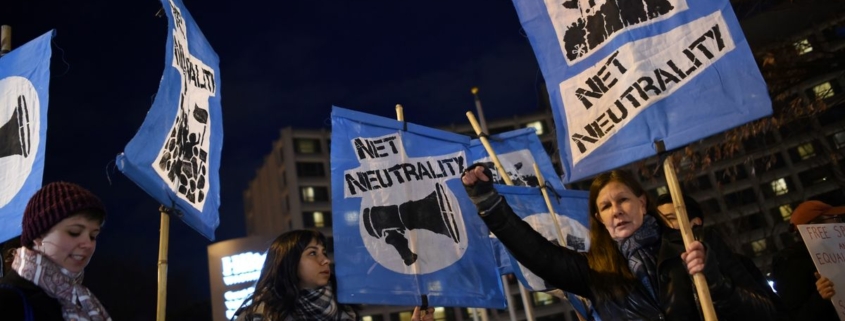FCC will vote on bringing back net neutrality regulations on April 25
The FCC has announced that it will vote on a proposal to restore net neutrality on April 25, a move that, if approved, it says will “bring back a national standard for broadband reliability, security, and consumer protection.”
Back in 2017, we explained why net neutrality matters—and why we think PC gamers should support it—and the basic facts remain the same today. Simply put, net neutrality requires that all data is treated equally, and forbids ISPs from throttling speeds or blocking access to content based on the nature of the content being delivered. It was enshrined into US law by the Obama administration in 2015 under the Open Internet Order, but then dismantled just a couple years later by the Trump administration.
It wasn’t a popular move. The vote to dismantle regulations broke along party lines—three Republicans voted in favor, two Democrats against—and there was significant opposition from the public and organizations including the ACLU, EFF, and even Google. The effort to restore regulation began in 2021 with an executive order from US president Biden, and the process began in earnest in September 2023.
“The pandemic proved once and for all that broadband is essential,” FCC chairwoman Jessica Rosenworcel said in the announcement of the upcoming vote. “After the prior administration abdicated authority over broadband services, the FCC has been handcuffed from acting to fully secure broadband networks, protect consumer data, and ensure the internet remains fast, open, and fair.
“A return to the FCC’s overwhelmingly popular and court-approved standard of net neutrality will allow the agency to serve once again as a strong consumer advocate of an open internet.”

The ACLU commended the effort, saying it is “thrilled that the FCC is moving closer to reinstating essential net neutrality rules,” but there’s been considerable pushback against it from some conservative-oriented watchdog groups and think tanks.
The Foundation for American Innovation, for instance, said the FCC “looks poised to saddle broadband providers with Title II rules that will increase compliance costs for ISPs and drive up the price of deploying networks,” while Citizens Against Government Waste issued a statement saying the restoration of net neutrality regulations “will stymie innovation, reduce investment in next generation technologies, and make it more difficult to go online for businesses, families, and students.”
The FCC, however, said adopting the proposal will enable it to provide oversight of broadband outages, increase broadband network security and consumer protections, bring back “a widely accepted national standard”—in the wake of deregulation, some individual US states including California, New Jersey, and Oregon adopted their own net neutrality regulations—and prevent internet providers “from blocking, slowing down, or creating pay-to-play internet fast lanes.”
In our latest video: Net Neutrality and why it’s so important. Internet service is essential, and it should have effective oversight to address internet outages, national security concerns, and consumer protections. Learn more about our upcoming vote to restore #netneutrality pic.twitter.com/X1yA2PhtNcApril 3, 2024
Like the vote to end net neutrality, it seems likely that the vote to restore it will also break along party lines. This time, however, the Democrats have a 3-2 edge, and given that the three Democrats voted in favor of moving the process forward in October 2023, it’s a reasonable bet that the vote to restore regulation will go the same way. How long it will last, though, and whether we’ll be talking about the looming dismantling of net neutrality rules when the Republican party regains control of the FCC at some point in the future, is anyone’s guess.
Source link




